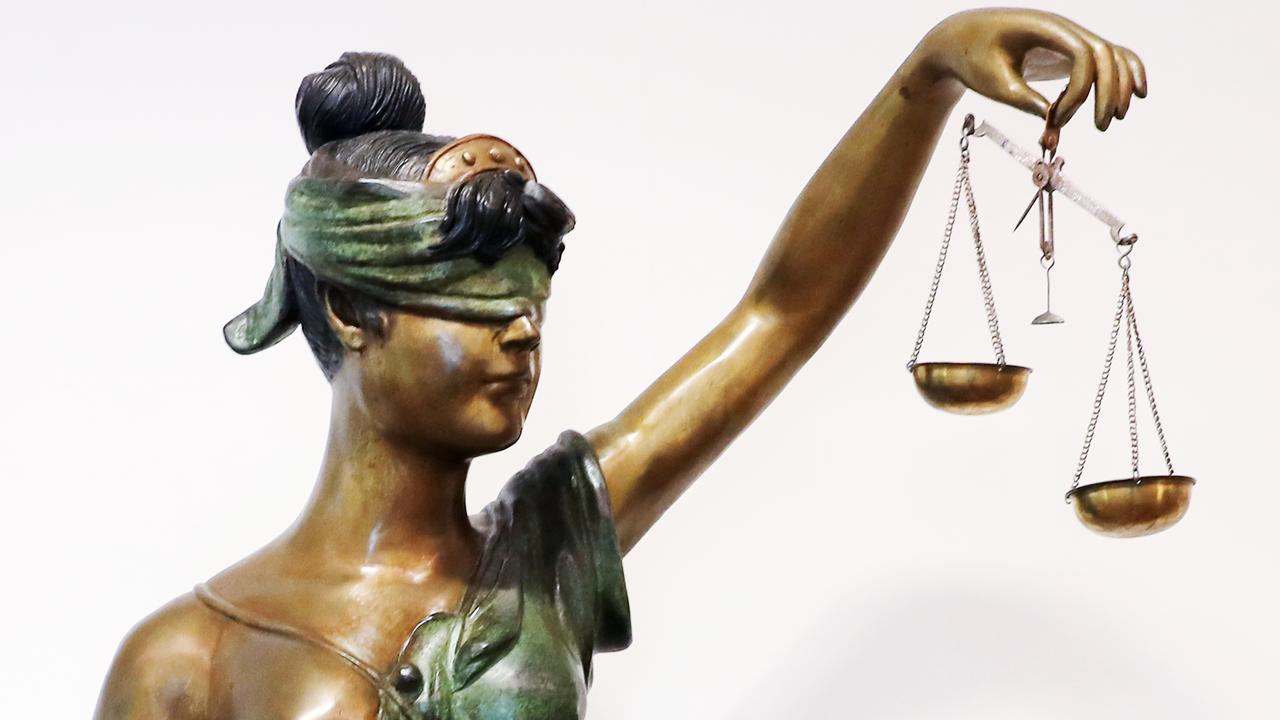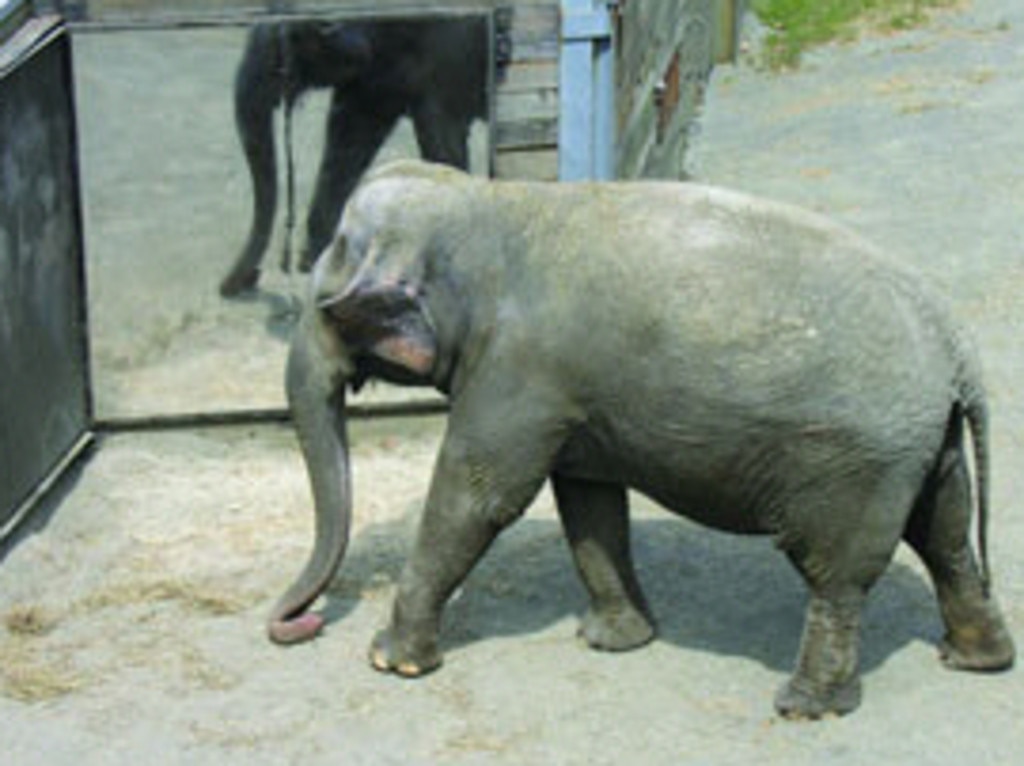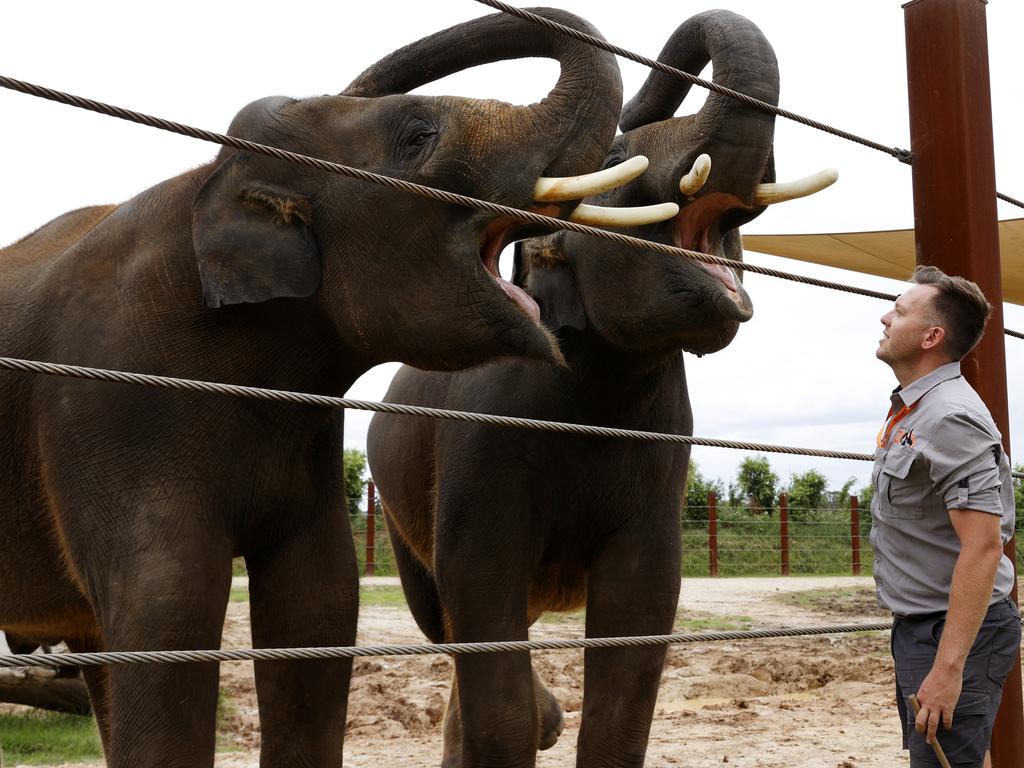Top US court rules out elephant’s entitlement to claim human rights
The US Court of Appeals has closed the gate on the question of whether Happy the elephant has the same rights under the law as a human being, ruling the ‘magnificent creature’ is not a person

READING LEVEL: ORANGE
Happy the elephant is intelligent and deserves compassion* – but she can’t be considered a person, according to Tuesday’s ruling in New York’s top court.
The 5-2 decision by the state Court of Appeals ends the closely watched case that tested the limits of applying human rights to animals.
Happy lives at New York’s Bronx Zoo and the zoo and its supporters warned that a win for advocates* at the Nonhuman Rights Project could open the door to more legal actions on behalf of animals, including pets, farm animals and other species in zoos.

The decision written by Chief Judge Janet DiFiore said that “while no one disputes* that elephants are intelligent beings deserving of proper care and compassion,” the law was intended to protect the liberty of human beings and did not apply to a non-human animal like Happy.
The decision affirmed a lower-court ruling that means Happy would not be released to a more spacious sanctuary as when people challenge illegal confinement.
Extending the right to Happy to challenge her confinement at a zoo “would have an enormous destabilising impact on modern society,” the ruling said.
Granting legal personhood in a case like Happy’s would impact how humans interacted with animals, according to the majority decision.

“Followed to its logical conclusion, such a determination would call into question the very premises* underlying pet ownership, the use of service animals, and the enlistment* of animals in other forms of work,” read the decision.
Operators of the Bronx Zoo argued Happy was neither illegally imprisoned nor a person, but a well-cared-for elephant “respected as the magnificent creature she is.”
But advocates at the Nonhuman Rights Project argued that Happy was worthy of rights reserved in law for “a person.”
Judges Rowan Wilson and Janney Rivera were in favour of extending these human rights to Happy and wrote that being an animal did not prevent Happy from having legal rights.

Judge Rivera wrote that Happy was being held in “an environment that is unnatural to her and that does not allow her to live her life.”
“Her captivity is inherently* unjust and inhumane,” she wrote. “It is an affront* to a civilised society, and every day she remains a captive — a spectacle for humans — we, too, are diminished*.”
The ruling from New York’s highest court cannot be appealed. The Nonhuman Rights Project has failed to win similar cases, including those involving a chimpanzee in upstate New York named Tommy.

Founder Steven Wise said he was pleased the group had managed to persuade two of the judges. He noted that the Nonhuman Rights Project had a similar case underway in California, with more planned in other states and countries.
“We will take a really close look at why we lost and we’ll try to make sure that (it) doesn’t happen again to the extent that we can,” he said.
Happy was born in the wild in Asia in the early 1970s, captured and brought as a one-year-old to the United States. She arrived at the Bronx Zoo in 1977 with fellow elephant Grumpy, who died in 2002.
GLOSSARY
- compassion: sympathy, pity, understanding, feeling
- advocates: people who publicly support or defend a cause, idea or policy
- disputes: disagrees with, debates, questions
- premises: assumptions, foundations, theories, ideas at the basis of things
- enlistment: getting help from someone or something, usually in the form of work
- inherent: very natural, in-built, basic, essential, ingrained
- affront: insult, outrage, offence
- diminished: to be less than before, to grow smaller, be reduced
EXTRA READING
China’s wandering elephants become global stars
China’s wandering elephants head home
Ban rejected on live sheep exports
Horse trainer Darren Weir gets 4-year ban
QUICK QUIZ
- Where does Happy the elephant normally live?
- What is the name of the advocacy group that wanted her to have human rights?
- Where and when was Happy born and how long has she been in the US?
- How many judges found in Happy’s favour?
- Can this ruling be overturned?
LISTEN TO THIS STORY
CLASSROOM ACTIVITIES
1. Do you agree?
Do you agree with the court’s ruling? Write a list of arguments or reasons that will convince another person that your opinion is correct.
Time: allow 20 minutes to complete this activity
Curriculum Links: English; Civics and Citizenship
2. Extension
If Happy the elephant was able to speak to the Court of Appeals during the case, what do you think she would say? Write the speech that you think Happy would give to convince the court that she is being “illegally confined”.
Time: allow 30 minutes to complete this activity
Curriculum Links: English; Civics and Citizenship; Critical and Creative Thinking
VCOP ACTIVITY
Stretch your sentence
Find a “who” in the cartoon – a person or an animal. Write it down.
Add three adjectives to describe them better.
Now add a verb to your list. What are they doing?
Add an adverb about how they are doing the action.
Using all the words listed, create one descriptive sentence.

